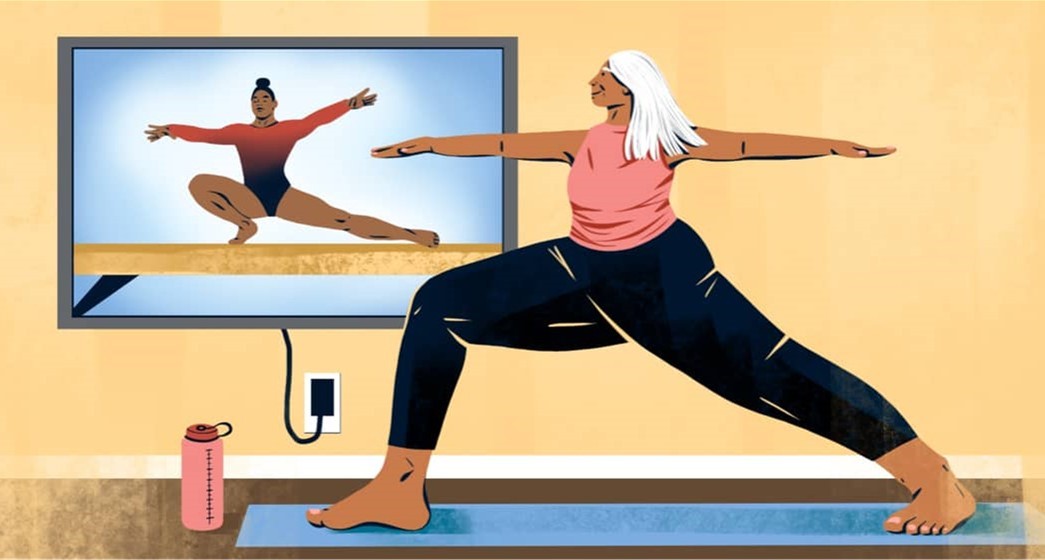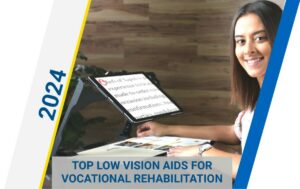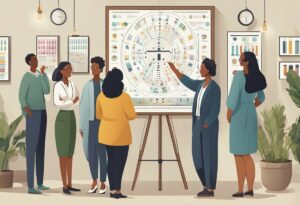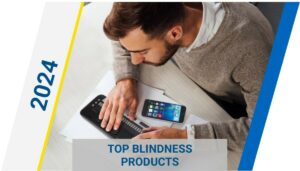Focusing on the Can, Not the Can’t – Accepting the Limits of Macular Degeneration

A reminder
This morning it poured into my inbox. “Know your limits,” the universe seemed to say. First Simone Biles to drop out of an Olympic gymnastics event because she was not mentally ready; the dreaded “twisties” had made it impossible to do things she could have done a month ago.
I would like to think that my Macular Degeneration has not affected how I live my life; that it has not restricted my choices or reduced my limits. I have always prided myself on being a strong, independent person and I am. My only limits were self-imposed, or so I believed.
The limits of AMD
The reality is that AMD does set new limits on those of us with the diagnosis. It is a chronic condition. Until medical science comes up with a miracle cure we will have it until we die. From the need for new vitamins and a more serious focus on diet and exercise to regular injections and restrictions on our driving, our lives are limited in small and large ways.
I’m working on being grateful that I can figure out how to deal with these limitations. Too many beloved friends and family my age are not here to share complaints about aches and pains. Others are facing shortened lifespans because of cardiovascular disease.
The people competing in the Olympic games are a screaming demonstration of limits.
“How do they do that,” my husband bellows as one male gymnast after another does things that he can’t do on dry land. And never could.
“Sweetie, they’ve been practicing this for years,” I calmly reply. “They’ve trained their bodies to do things that are beyond the limits of 99 percent of us.”
“But I bet that you can do things some of them can’t,” I add.
Prioritizing what we can do
I really don’t care about rock climbing. I do care about my balance, my strength, and my heart health. While I’ll never do gymnastics I’ll keep working at some yoga poses, take regular walks, and do tai chi. Reading is important, so I’m working with an occupational therapist to use my peripheral vision to compensate for the loss of acuity.
Getting enough sleep, eating all those healthful foods, doing meditation regularly, and keeping up with friends means that my limits won’t shrink just because my vision does.
I’ll never stick a landing off the balance beam, but I sure can work on keeping a healthy balance in my life.
This article was published on August 25, 2021 by MacularDegeneration.net and authored by Beverly Dame. <Click here> to read the original article.
How Can We Help You Or A Loved One
We are fortunate to have Tracy Andrews as a member of the New England Low Vision and Blindness Team! Tracy Andrews is herself legally blind and shows customers the latest in low vision equipment and shares strategies and tips for how to live a full and independent life with a vision impairment. She is also the author of our blog 60 Seconds to Greatness – click here to read the post and watch Tracy’s video.
You can also access these other resources:
- Free eBook: If you or a loved one has been diagnosed with Macular Degeneration, we have created this 12-section eBook “Now What? – a free resource to help you or loved one who has been diagnosed with Macular Degeneration. <Click here to download a PDF of the entire report.>
- Technology: We offer the latest and most advanced low vision and blindness technology supported by world-class personal service. We have nearly 100% of all major electronic low vision, blindness, and software products. Our complimentary, no-obligation demonstration on any of our products will make sure our clients are getting the right product for their specific eye condition.
- Training: Technology rehabilitation training services for people with low vision and blindness. We go to our clients – home, school, or business – training where they need it – from caring assistive technology professionals.
- Smart Home: Our Smart Home services can help design a solution to help our clients or their loved ones remain independent by using the many features of a Smart Home. <Click here to learn more.>
- Bring Hope: We Bring Hope to people who are blind or visually impaired through the many products and services we offer. <Click here to learn more about our Bring Hope services.>
- Convenience: Our two(2) state-of-the-art technology showrooms are a wonderful resource, showcasing a variety of leading electronic low vision magnifiers and blindness products. Our clients schedule an appointment with one of our Technology Specialists who can help you find the right technology, training, and care solution. If our client cannot come to us, our staff can even drive out and bring our Vision Store to them, for a no-obligation product demonstration.
To learn more about how we can help you or a loved one, contact a Technology Specialist at New England Low Vision and Blindness today. You can call our toll-free number 888-211-6933 or email us at info@nelowvision.com and we will be happy to help.




